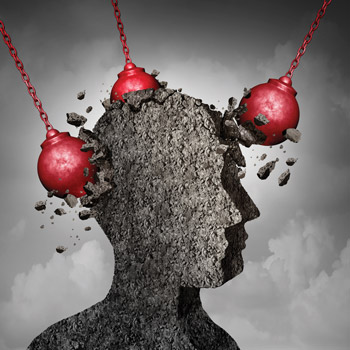Opinions can vary on exchanging gifts with patients
Doctors' opinions vary on whether it's a good idea for physicians to give gifts to patients.
Exchanging gifts with patients is a controversial practice, but ACP Member Ersilia M. DeFilippis, MD, sees it as an occasional component of good doctoring.
“I believe that alleviating suffering involves providing comfort, solace and coziness, even if that takes the shape of a fluffy golden teddy bear,” she wrote in a May 2018 blog post published by the New York Times' Well blog.
In her essay, Dr. DeFilippis noted that the ACP Ethics Manual encourages physicians to consider the nature of gifts given by patients, including their value and the potential implications of accepting or refusing them to the patient-physician relationship. Small gifts as a token of appreciation are not ethically problematic, but gift-giving that results in favoritism undermines professionalism, according to the manual.
While physicians giving gifts to patients is a less common issue, doctors' opinions can vary on whether it's a good idea, according to Dr. DeFilippis, a first-year cardiology fellow at New York Presbyterian Hospital/Columbia University Medical Center in New York City. She recently spoke with ACP Internist about why she believes exchanging the right gift can strengthen the bond between patients and their doctors.
Q: What drives you to give gifts to patients on occasion?
A: As physicians, we often see a spectrum of patients as well as a spectrum of disease. Sometimes we have answers, sometimes we have treatments, but sometimes we don't. It can be emotionally difficult both for physicians and patients when we reach the limits of what we know and what we can do. In these situations, we often underestimate the impact of even small acts of kindness in bringing comfort to people and showing that we are listening and that we care.
My mother, a patient herself, is an incredibly thoughtful and generous person. Growing up, she would always encourage me to give small tokens of appreciation to a variety of individuals. She would bake cookies for my teachers for holidays when I was in elementary school and would buy a small gift for my father just because she thought he would like it. She always remembers people's birthdays and sends them a hand-written card in the mail, which is rarely done anymore in this age of technology. She brightened so many days and I think inspires much of how I try to live my life.
Q: Who do you choose to give gifts to, and how do they typically react?
A: I think we all have those patients who remind us of ourselves or someone we know, or those patients we are just drawn to for one reason or another. We find ourselves stopping by their hospital room again just to talk, and in these interactions, we remember their humanity.
The hospital is a very sterile environment and is dehumanizing; patients do not even wear their own clothes, and their independence is taken from them. I think we forget how challenging that can be for patients to deal with, especially patients who spend weeks to months in the hospital. While I know that patients have inner strength and tremendous resilience, we are all human and vulnerable.
One of my patients (who I mention in the New York Times piece) was waiting for a heart transplant for weeks. She was about my age, and I often thought of how pure happenstance (and genetics) had led us down completely different paths in life. I thought of all the ways in which our childhoods had been different. When she received a heart, her whole care team felt such immense happiness and hope. I think I felt that by giving her a gift, [a plush toy version of an anatomically correct heart], I could channel those emotions into something tangible and remind her that her whole team of doctors was rooting for her.
Q: What kind of pushback have you gotten from colleagues, and why do you think there are ethical concerns about this?
A: The only pushback that I initially received was when I was a medical student taking care of a woman with multiple myeloma. One of my classmates felt like I was crossing a boundary. It's possible that we have different concepts and definitions of our job description. What does it mean to be a doctor? In a very narrow sense, we make diagnoses, prescribe medications, and order tests. But to be a healer is more than that. That “more” may be different to different people.
Q: What other feedback have you gotten after writing the New York Times piece?
A: Overall, the feedback was very positive. For better or for worse, I tend to read the reader comments at the end of all the articles I have written for the Well blog. People were very forthcoming and mentioned a variety of stories. One person described how a nurse baked a cake for his grandfather's 70th birthday while he was hospitalized and dying from leukemia. Another mentioned how her husband's oncologist gave her husband a bottle of wine when he reached the five-year anniversary of his remission. One person commented that pediatricians give kids lollipops, so why is this any different? That stuck with me.
I also received a personal letter mailed to me at the hospital. A woman wrote about a gesture by her physician 26 years ago that she still vividly remembers and thinks of fondly. The gesture was a simple one: The doctor stopped by to wish her well one early morning before her surgery for her cancer.
Q: When receiving gifts from patients, how does one follow the ACP Ethics Manual and “consider the nature of the gift” and potential implications?
A: Most gifts from patients are tokens—tokens of gratitude and appreciation for your care. We as doctors are humans too, and although we are not looking for them, these gifts are a symbolic representation of the relationships we form with our patients and why we continue to practice medicine.
I think in considering the nature of the gift, it is important to understand the socioeconomic and cultural context surrounding your relationship with your patient. Although it is easy to spot the lavish and excessive gifts, even $20 can be a significant sacrifice for a patient who you know has housing and food insecurity.
The majority of gifts that patients give, if anything, strengthen the doctor-patient relationship, allowing people to reflect on the shared experiences they have had together. While in theory, gifts could lead to different levels of care for different patients, in practice, we all have a responsibility to all patients.
Q: What would you say to doctors who have staunch boundaries against gift-giving with patients?
A: I think it's up to each doctor to determine what he or she can live with at the end of the day. For me, if I can do something small that helps validate or humanize my patient's experience, it is worth doing. In many ways, I find that to be an extension of the work that we try to do every day as doctors.





